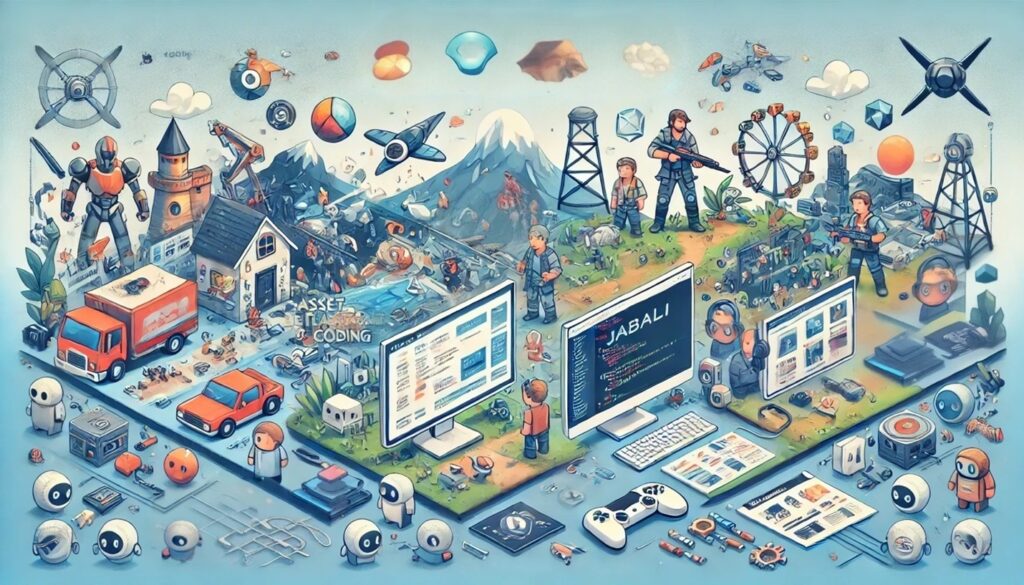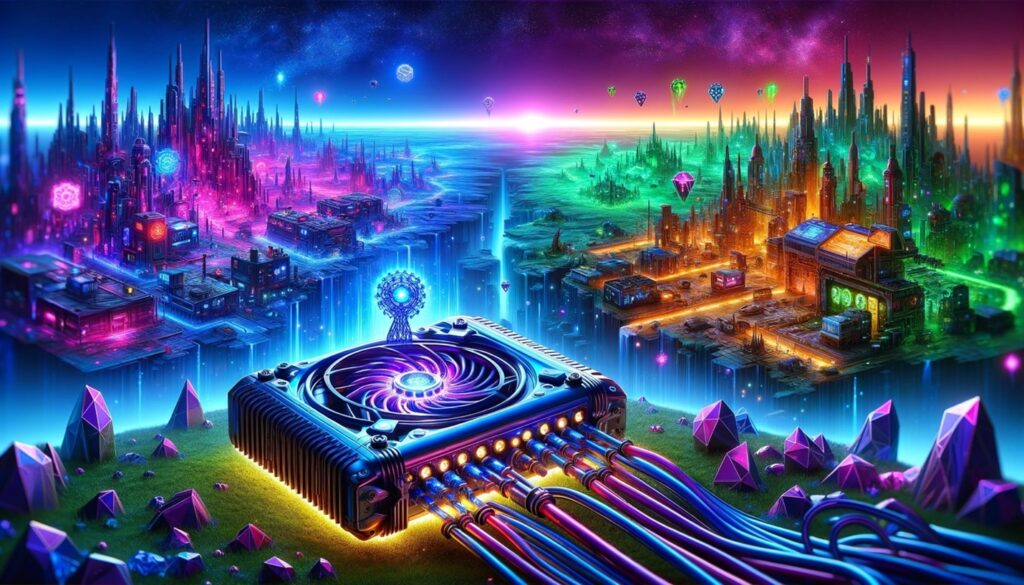Jabali is a start-up founded in 2023 whose toolset, Project Makina, is a suite of generative AI software and engine for streamlining, simplifying, and speeding up the process of video game creation. Project Makina uses simplified text prompts, allowing users to create new types of games and interactive experiences without needing extensive game development knowledge. Project Makina is available in a closed beta through Jabali’s Discord community.

Jabali is a start-up founded in 2023 whose toolset, Project Makina, is a suite of generative AI software and engine for streamlining, simplifying, and speeding up the process of video game creation. Project Makina uses simplified text prompts, allowing users to create new types of games and interactive experiences without needing extensive game development knowledge. Project Makina is available in a closed beta through Jabali’s Discord community.
In a very short period of time, AI has revolutionized the creative industry. For some, it has enabled them to become artists; for others, they have turned into video editors and even professional-level photographers—and now, game developers.
Jabali is a start-up, founded in 2023, comprising game developers, academics, researchers, and engineers, all linked by a common interest in and passion for video games. It was started by Vatsal Bhardwaj, a former Amazon and Meta executive who also built popular video games while working at Zynga and Storm8. His vision for the past decade has been the democratization of video game development, a lofty goal, experience has taught him, based on current game development technology. However, with the rise of generative AI, he and his team have removed major roadblocks such as excessive coding or complicated workflows, turning their vision into a reality.
Jabali’s cloud-based Project Makina is turning game development on its head with a suite of generative AI tools and engine that streamlines and simplifies game creation, helping would-be developers of all experience levels to turn their concepts into full-functioning games—no coding experience required. By eliminating the need to code, the company said game creation is up to 100´ faster through the software’s use of simple natural language prompts, enabling real-time game generation.
The AI-native engine can be used on any device, enabling users to build games on mobile, browser, and desktop platforms within the Discord app (although to play one of the games, is only available on desktop browsers). It is designed specifically for video games and interactive experiences. Project Makina is currently available in closed beta. Bhardwaj, Jabali’s CEO, expects it to come out of closed beta by early next year.
“At Jabali, we believe that AI is the next chapter of innovation in video games. We need a revolutionary engine, built from the ground up incorporating advancements in generative AI. Our engine revisits what a game engine can do, enabling more people to make games and new experiences,” Bhardwaj has stated.
Project Makina is not a one-trick pony, as it assists in creating more than 10 different genres of games, including character sims, visual novels, interactive stories, and classic arcade games. As Bhardwaj explained, users do not start with a base game; they start from scratch from a list of the supported game styles offered by Project Makina.
By using simple natural language prompts, users can kick-start a game and customize various selections such as the game’s narrative, environment, visuals, and NPCs. After that, Project Makina takes over, generating a game in minutes.
Project Makina is an end-to-end solution with a customizable AI engine that utilizes various AI models for each task in the game development process, such as creating character portraits, facilitating choice generation in interactive stories, and making game builds. It employs a multi-agentic software development workflow, whereby each agent has a set of specialized objectives while interacting with other agents to achieve a unified goal. As a result of this workflow, users are able to produce games with intelligent characters, branching storylines, and multiple endings.
In addition to the software’s AI-supported editing features, manual editing functionality is also available.
The engine and toolset interoperate and work with existing commercial game engines as well as custom game engines.
“Jabali is addressing fundamental shifts in game development requiring multi-modal generative AI technology to be built from the core of the game engine. This approach will not only supercharge game studios but also enhance game development and foster a new generation of game creators,” Joseph Tou, US managing director of Sony Ventures, stated in an earlier press release announcing Jabali’s $5 million funding round this past March.
During the free closed beta, users can try out the software through the company’s Discord community (discord.gg/jabali), where they can generate fully working games in under 5 minutes and share them with others, Jabali said.
When generally released, a basic version of the software will be offered free of charge with an imposed limit, with subscription options for access to advanced features and high usage of basic features. An SDK will also be available for custom integration activity.
